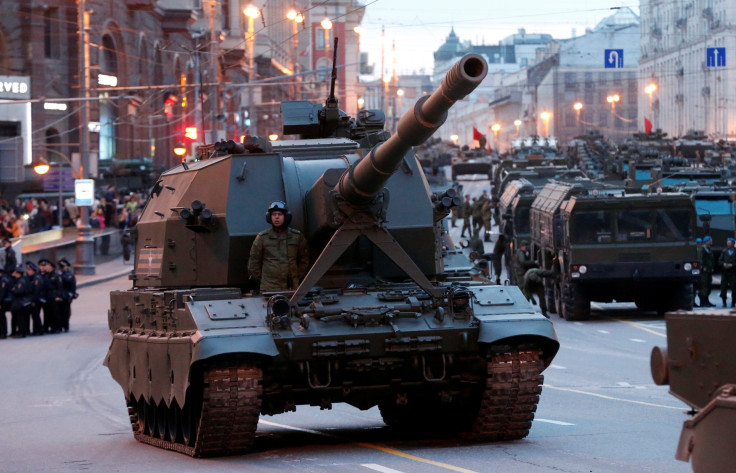Russia-NATO Crisis: Moscow Hits Out At Bloc Over Accusations Of Breaching Military Transparency

The Russian Defense Ministry hit out at NATO Wednesday after the bloc accused the country of hindering military transparency in Europe by conducting snap exercises. The ministry also said that NATO was using so-called “Russian threat” to create panic, and showing the country as an enemy.
Earlier Wednesday, after a meeting of the NATO-Ukraine Commission, the bloc’s Secretary-General Jens Stoltenberg said that Russia breached military transparency, referring to Russian President Vladimir Putin's orders Tuesday for large-scale snap drills to examine battle-readiness of the country’s armed forces.
“We have seen reports about the new snap exercise and this is part of a pattern where we have seen several Russian snap exercises over a long period of time and one of the challenges with the snap exercises is that that’s a way to not implement the agreements we have for instance in the Vienna Document to notify and to inform about exercises. So snap exercises are undermining transparency and predictability and it makes it impossible to have any effective and useful transparency and observation of the exercises,” Stoltenberg said.
However, Russia refuted the allegations, saying that such international accords do not apply to the drills conducted by Moscow. The country also said that it provided military attachés and the Organization for Security and Cooperation in Europe with relevant information as courtesy.
“Not a single action within the military training of the Russian Army, including an expected operability test, violates international agreements and treaties, according to which Russia must provide information on its military activities where measures on enhancing confidence and security are being applied,” Defense Ministry spokesman Igor Konashenkov told reporters.
“The real aim of allegations about the Russian military threat is to intentionally create panic and maintain the image of a treacherous enemy, fighting which can provide colossal military budgets,” Konashenkov added.
Russia received criticism from NATO and the U.S. after annexing the Crimean Peninsula. Since then, Moscow has completed a military base in the Arctic Circle and deployed troops near the borders of some of the Baltic states, while regularly carrying out air drills near northern European countries such as Finland.
Meanwhile, NATO’s 10-day military exercise Anakonda 16 is underway in Poland. This is seen at the alliance’s largest overhaul since the Cold War by arranging additional troop rotations to eastern European nations alarmed by the Crimean annexation.
© Copyright IBTimes 2025. All rights reserved.





















